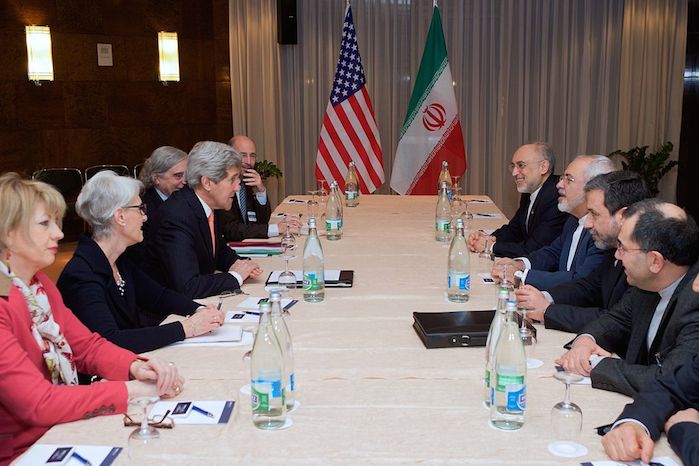Don’t Renege on the Nuclear Deal Because of Sunset Clauses

Ali Vaez explains once again why the sunset clauses in the Joint Comprehensive Plan of Action (JCPOA) are unavoidable and why scrapping the deal because of them makes no sense:
Years down the road, however, when the IAEA gains confidence that there are no undeclared nuclear activities and materials in Iran, it will be unreasonable not to treat Iran like any other NPT [Non-Proliferation Treaty] member state in good standing [bold mine-DL]. This means that the unprecedented verification measures would end, but rigorous inspections would continue in perpetuity.
If the Trump administration cannot accept this, then its real problem is not with the provisions of the deal or Iran’s compliance with them. It is, rather, either with the NPT itself or with the nature of the Iranian political system. If so, no deal would be satisfactory, unless it entails Tehran’s total capitulation to U.S. demands or a regime change [bold mine-DL]. Neither appears in the cards.
When Iran hawks claim that the nuclear deal “paves the way” to an Iranian nuclear weapon, what they mean is that some of the deal’s provisions will expire after 10 or 15 years. Leaving aside the possibility that Iran’s government might be significantly different by then, objecting to sunset clauses amounts to objecting to making any agreement on the nuclear issue. Not only are they a standard feature of agreements like this one, but no government would agree to accept such significant restrictions on its nuclear program forever. If those restrictions were going to be accepted by Iran at all, they had to be for a limited amount of time.
The larger point is that Iran is permitted to have an advanced nuclear program under the NPT, and the nuclear deal has been negotiated to allow that after Iran has demonstrated in good faith that it isn’t trying to use its program to build nuclear weapons. However, the deal also obliges Iran to ratify the IAEA’s Additional Protocol in a few years. Vaez explains why that matters and why it invalidates this hawkish criticism of the deal:
Assuming the other parties to the deal reciprocate by holding up their end of the bargain, Iran will ratify in 2023 the IAEA’s Additional Protocol, which allows short-notice inspections of undeclared facilities in Iran and which it is now voluntarily implementing. To date, no country on earth has developed nuclear weapons under the watchful eyes of the IAEA’s inspectors who are empowered by the access that the Additional Protocol affords them.
So even once certain provisions of the deal expire, the IAEA will have the ability to monitor Iran’s nuclear program with their consent. The IAEA will be able to monitor the program so closely that it would be practically impossible for Tehran to build nuclear weapons without being caught even if they intended to try. In that scenario, it is very unlikely that Iran would even attempt to build nuclear weapons, and it is is even less likely that they would be successful. That is what Iran hawks call “paving the way” to a bomb. It’s just one more reminder that their objections to the deal are unfounded and usually made in bad faith.
Comments